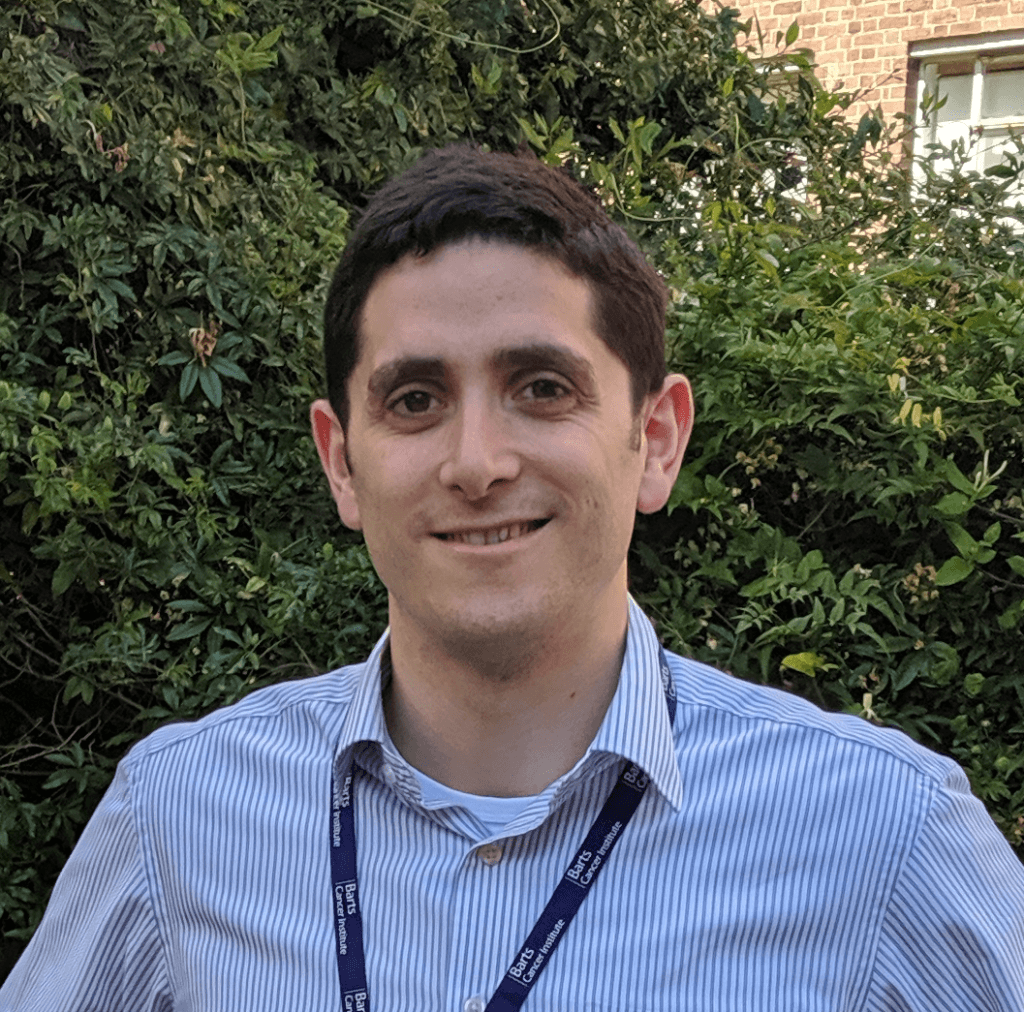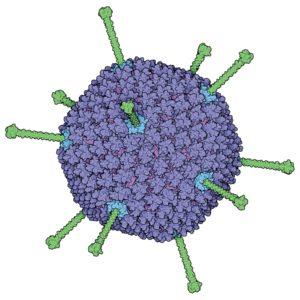Pancreatic Cancer Research Fund supports two new vital research projects
 The Pancreatic Cancer Research Fund (PCRF) is supporting two new research projects at the Barts Cancer Institute, Queen Mary University of London. The projects, led by Professor Hemant Kocher and Dr Gunnel Halldén, will aim to identify ways to enhance the efficacy of treatments for pancreatic cancer, to ultimately help those affected by this devastating disease.
The Pancreatic Cancer Research Fund (PCRF) is supporting two new research projects at the Barts Cancer Institute, Queen Mary University of London. The projects, led by Professor Hemant Kocher and Dr Gunnel Halldén, will aim to identify ways to enhance the efficacy of treatments for pancreatic cancer, to ultimately help those affected by this devastating disease.
PCRF’s founder and chief executive, Maggie Blanks, said:
“Pancreatic Cancer Research Fund supports only the most exceptional research applications and over the years we’ve funded several projects from both Professor Kocher and Dr Halldén. This is a real testament to the quality and expertise in pancreatic cancer research at Barts Cancer Institute. We’re looking forward to the results of these new projects and to how they contribute to the global body of knowledge that will drive progress with this disease.”
Although pancreatic cancer accounts for only 3% of the total cancer cases diagnosed each year in the UK, it has the lowest survival rate of all cancers, and only around 5% of people diagnosed with this cancer survive for 5 years. It is believed that pancreatic cancer will be the second most common cause of cancer mortality (after lung cancer) by 2030, it is therefore vital to act now to develop more effective treatments for patients.
Improving the efficacy of immunotherapies in pancreatic cancer
Immunotherapy harnesses the power of the body’s own immune system to kill cancer cells and has been an exciting area of research in recent years, with immunotherapy approaches showing promising results in a variety of cancer types. However, immunotherapy has demonstrated limited success in pancreatic cancer due to the complex environment of cells and proteins surrounding the tumour, which create an impenetrable barrier against drugs and the body’s own immune cells.
Understanding the interactions between immune cells and cancer cells in pancreatic cancer
With funding of ~£200,000 from PCRF, Professor Kocher and his team will look at the role of T cells within the tumour microenvironment of pancreatic ductal adenocarcinoma, a type of pancreatic cancer which accounts for 95% of all pancreatic cancer cases. T cells are a subtype of white blood cell which have an important role in the immune system and the fight against cancer. By using preclinical models and tissue samples from patients to analyse the interactions between T cells, cancer cells and other cells within the tumour microenvironment, the team hope that they will be able to enhance the activity of T cells using targeted drugs.
 PCRF funding has supported the recruitment of postdoctoral researcher Dr Daniel Friedman (pictured right) to carry out the research for this project. Daniel has an undergraduate degree in Biomedical Sciences and an MRes in Immunology from the University of Manchester. After completing his PhD in Manchester, Daniel wanted to find a research project with a strong translational element that would impact on the lives of patients.
PCRF funding has supported the recruitment of postdoctoral researcher Dr Daniel Friedman (pictured right) to carry out the research for this project. Daniel has an undergraduate degree in Biomedical Sciences and an MRes in Immunology from the University of Manchester. After completing his PhD in Manchester, Daniel wanted to find a research project with a strong translational element that would impact on the lives of patients.
Speaking about the project, Daniel said:
“Immunotherapies present as a novel and promising approach to eradicate previously incurable cancers as has been observed in patients with melanoma and renal cancer. Studies have demonstrated that pancreatic cancer patients suffer from immune malfunction within the tumour environment and I am excited to set out and investigate the immune crosstalk in greater detail. New insights emerging from this study have the potential to identify new druggable targets aimed at modulating the patient’s immune response for a favourable outcome.”
The team hope that this project will inform future clinical trials that will ultimately identify ways to enhance the effects of immunotherapies in patients with pancreatic cancer.
Using viruses to seek and destroy cancer cells

Oncolytic virotherapy is a modality of cancer treatment that uses modified viruses to infect and kill tumour cells. Dr Halldén and her team have engineered a flu-like virus, known as an adenovirus, which selectively seeks out and kills pancreatic cancer cells. The virus is targeted to a molecule called αvβ6-integrin, which is found on the surface of many pancreatic cancer cells but not on normal cells, thus normal cells are not harmed by the virus.
The virus works in three ways to fight pancreatic cancer:
- The virus enters the cancer cell and replicates to produce many copies of itself until it bursts and kills the cancer cell. The newly released viral copies can then bind onto neighbouring cancer cells and repeat the same cycle, eventually removing the tumour mass.
- When the tumour cells burst, they release substances that can be recognised by the immune system. This attracts immune cells to the tumour site and boosts the host anti-tumour immune response.
- The virus also kills other cells which have a role in creating the impenetrable barrier around the pancreatic tumour. By eliminating these cells, the virus paves the way for other drugs to access the tumour.
The funding awarded by PCRF (~£200,000) to Dr Halldén’s team will be used to identify existing cancer drugs, in collaboration with colleagues at The Institute of Cancer Research, which enhance the activity of the virus by amplifying its ability to replicate and improving its longevity within the body. The team will first test the efficacy of these drugs in cell lines and pre-clinical models and, if the treatment proves safe and effective, hope to progress to clinical trials.
Category: General News, Grants & Awards

No comments yet